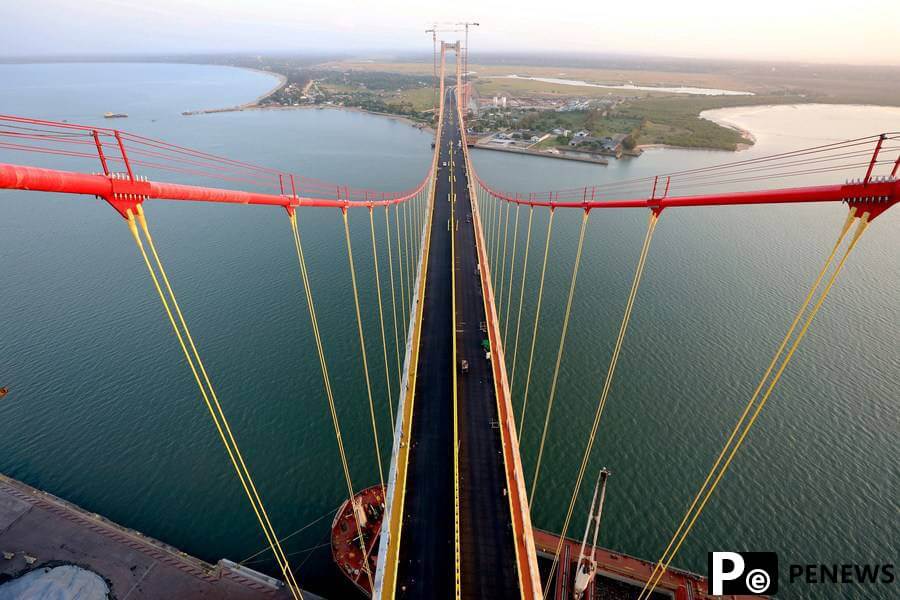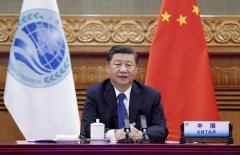Home>>
"Chinese debt trap" rhetoric an attempt to mislead world through kindergarten mathematics(Xinhua) 08:46, May 20, 2021
-- Disregarding the true figures that reflect the benefits brought by China-Africa cooperation, Blinken's debt trap rhetoric is brimming with logical fallacy and naive calculation.
-- The Debt Management Office (DMO) of Nigeria has ruled out any form of concerns over Nigeria's indebtedness to China, deeming Chinese loans not only project-tied but also concessional.
-- With China's help, over 6,000 km of railways, 6,000 km of roads, nearly 20 ports and over 80 large power plants have been built in Africa. China's direct investment in Africa in 2019 had grown by 100-fold compared with 20 years ago, according to the Chinese Foreign Ministry.
NAIROBI, May 19 (Xinhua) -- U.S. Secretary of State Antony Blinken's recent virtual travel to Africa has turned out to be a fresh political maneuver to smear China and undermine burgeoning China-Africa cooperation.
Using the same ploy inherited from his predecessors, Blinken has touted the old cliche of "Chinese debt trap," attempting to mislead the world through kindergarten mathematics, which has been refuted by African officials and scholars.
KINDERGARTEN MATHEMATICS
"If someone is coming along and saying I'm going to invest a lot of money in your country, but it's a loan, so, that means you have a debt and you're going to have to pay it back someday and if that is too great and you can't pay it back, then I'm going to own the asset in question," Blinken told the Alumni of the Young African Leaders Initiative in a virtual discussion in late April, hinting at China's loans and investment across the continent.
Disregarding the true figures that reflect the benefits brought by China-Africa cooperation, Blinken's debt trap rhetoric is brimming with logical fallacy and naive calculation.
"If we break down African countries' foreign debt, multilateral financial institutions and commercial creditors hold more than three-quarters of the total, and so bear a greater responsibility for debt relief," said Chinese Foreign Ministry spokesperson Wang Wenbin at a regular press conference in late February.

File photo taken on May 10, 2018 shows the aerial view of the Chinese-built Maputo Bridge in Maputo, Mozambique. (Xinhua/Wang Teng)
"Not a single African country had debt difficulties due to its cooperation with China," Wang said.
"When African countries have economic problems, China is always ready to find proper solutions through friendly consultation. We never press countries having difficulties on debt repayment, not to mention asking them to sign any imparity clauses," he said.
"In the meantime, China attaches high importance to debt suspension and alleviation in Africa ... We have signed debt relief agreements or reached debt relief consensus with 16 African countries," Wang said.
"The Chinese 'debt trap' is a false allegation, but it is true that some people are sowing discord between China and Africa with ill intentions. Anyone with an objective mind will come to a fair conclusion on that," he added.
Blinken's unfounded accusation against China has drawn criticism from African experts.
"One thing that is very particular about Chinese loans is sustainability. This whole thing about taking over assets just doesn't make sense," said Charles Onanaiju, director of Nigeria's Center for China Studies, describing Chinese loans as neither toxic nor threatening.
"The issue of the 'Chinese debt trap' cannot arise here because we have not seen it," said Zambian economist Kelvin Chisanga.
MYTHICAL DEBT TRAP
"Let me correct the impression that the debts are only owed to China. We have debts to a number of bilateral and multilateral partners and we treat them equally," Kenya's Cabinet Secretary for National Treasury Ukur Yatani told media.
Some 30 percent of Kenya's external debt comes from commercial banks, 30 percent from bilateral lenders and the remaining 40 percent from multilateral financiers, said Beatrice Matiri-Maisori, a senior economics lecturer at the Riara University of Kenya.
"We have quite an array of financial lenders in the country. So, I wouldn't say in any way that China is actually getting Kenya or any other African country into a debt trap," Matiri-Maisori told Xinhua.
The Debt Management Office (DMO) of Nigeria has ruled out any form of concerns over Nigeria's indebtedness to China, deeming Chinese loans not only project-tied but also concessional.

Photo taken on April 24, 2021 shows the Chinese-built Mombasa-Nairobi Standard Gauge Railway in Kenya. (Xinhua/Li Yan)
"Those are all concessional loans. No reason to be worried about them. They are all project-tied, which Nigerians should be happy about," DMO Director-General Patience Oniha told the local ARISE NEWS Channel.











